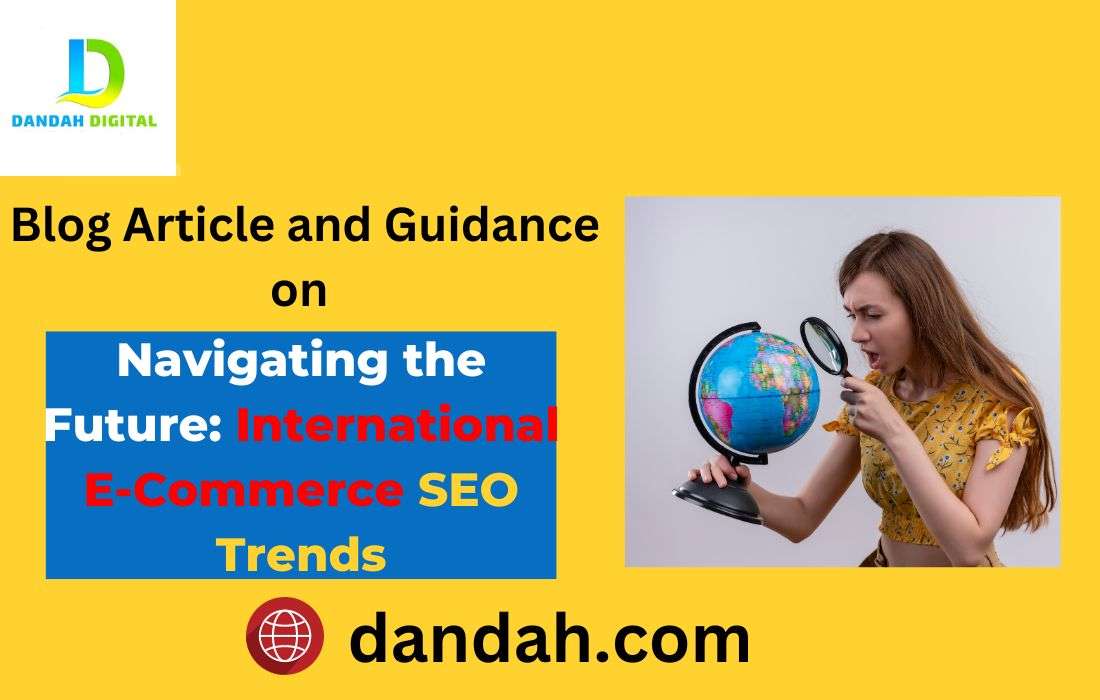In the ever-evolving world of e-commerce, staying at the forefront of SEO trends is important. With the international e-commerce landscape constantly changing, it’s essential to understand the latest developments that can impact your online business. In this comprehensive guide, we’ll explore the future trends in international SEO of e-commerce websites that you should be aware of to maintain a competitive edge. Let’s start now.
Difference between International SEO and Local SEO

The difference between International SEO vs Local SEO depends on your business goals and target audience. Both strategies have unique benefits and can lead to significant growth when executed correctly. Remember that SEO is an ongoing process; continuous monitoring and adjustments are essential to stay ahead of the competition and maintain a strong online presence.
Whether you focus on Local SEO, Global SEO, or both, remember that quality content, relevant keywords, and backlink building are crucial for ranking high on Google. Following the steps outlined in this guide can pave the way for your website’s success in the competitive digital landscape.
Common Implementation Challenges for International SEO for E-Commerce Portal
Due to the complexity of handling product listings, transactions, and customer experiences across different nations and languages, international SEO for e-commerce platforms has unique challenges. In the context of e-commerce, the following are some typical issues with the implementation of international SEO:
1- Language and Cultural Adaptation
Translating product ratings, descriptions, and other content into many languages and cultural contexts is important. Each target market’s subtleties and cultural preferences may need to be accurately translated.
2- Product Catalog Management
It isn’t easy to manage a varied product catalog for several locations. It would help if you guaranteed the correct price, product descriptions, and availability for each market.
3- Currency and Pricing
Pricing strategies are mostly complicated to adjust for different regions, display prices in the local currency, and handle currency conversions.
4- International Shipping and Logistics
Providing international shipping options and estimating shipping costs for different nations will be difficult. Controlling import/export laws and customs is very important.
5- Payment Methods
It’s critical to offer the local payment options that consumers prefer in each nation. Integrating with various payment processors and gateways may be necessary for global SEO E-Commerce.
6- SEO-Friendly URLs
Making consistent, SEO-friendly URLs for products and categories in various languages will be challenging.
7- Hreflang Tags
Using hreflang tags to indicate language and regional targeting and prevent duplicate content problems is crucial for product pages.
8- Duplicate Content
Due to similar product descriptions across regions, e-commerce websites frequently need help with duplicate content. Hreflang attributes and canonical tags must be used correctly.
9- Technical SEO
For your e-commerce platform to succeed in different markets and be technically sound, it must be mobile-friendly.
10- Local Link Building
Creating authoritative and relevant backlinks from local websites and influencers can be challenging but valuable for SEO.
11- Performance Tracking:
Monitoring and analyzing the performance of your international e-commerce SEO efforts, including conversion rates and revenue, is crucial for making data-driven decisions.
The Changing E-commerce International SEO Landscape

From SEO, most well-known E-Commerce portal and stores boost their sales, especially giving importance to international SEO for more sales in multiple countries. Here are some key trends to watch out for.
1- Voice Search Optimization
Voice search is becoming increasingly popular, thanks to smart speakers and virtual assistants like Siri. Optimizing your e-commerce site for voice search can improve your visibility and reach a broader audience.
2- Mobile-First Indexing
Google’s mobile-first indexing means that your website’s mobile version is the primary source for ranking and indexing. Ensure your site is mobile-friendly to maintain or improve your SEO ranking.
3- AI and Chabot
Artificial intelligence (AI) and Chabot’s transform how e-commerce businesses interact with customers. Implementing AI-driven Chabot’s will enhance user experience and increase conversions for international audiences. It’s important in global SEO.
4- Video Content
The video format content guides website visitors for products and services well. Utilize video to showcase your products, provide tutorials, and engage with your audience. Video SEO is a rising trend you should pay attention to.
5- Local SEO for Global Markets
Expanding internationally? Remember local SEO. Tailor your content and strategies to specific regions and languages to boost your global presence.
Future Trends in International E-Commerce SEO

Certain changes influencing the e-commerce market will greatly impact SEO tactics. What you need to look out for is listed below:
1- User Experience Matters
Google’s algorithms give websites that offer an excellent user experience priority. Pay attention to fast-loading website pages, simple navigation, and compatibility with mobile devices to rank higher.
2- High-Quality Content
It’s important to provide authoritative and quality content. To develop authority in your content, write in-depth product descriptions, blog entries, and established guidelines in your website content for your website visitors. Quality content is very important for businesses in this digital online world, especially for international and local SEO.
3- Schema Markup
To give search engines more context about your content, use schema markup. Your search results’ appearance and click-through rates could both benefit from this. It has value in E-Commerce SEO strategy for both international SEO and local SEO.
4- Core Web Vitals
Google’s Core Web Vitals evaluate page speed, interaction, and visually appealing stability indicators. Pay attention to these parameters to boost your website’s overall performance.
5- E-A-T (Expertise, Authoritativeness, Trustworthiness)
Google highly values content that displays experience, authority, and integrity. Through accurate and thoroughly researched information, demonstrate your knowledge.
6- Long-Form Content
Long-form content tends to perform better in search results. Craft comprehensive articles and guides to establish your site as an authoritative source.
Conclusion
E-commerce strategy for International e-commerce SEO involves constant adaptation to stay on top of the latest developments. Future trends to pay attention to include voice search, mobile-first indexing, AI, video content, local SEO, and E-A-T. You may set up your e-commerce company for success worldwide by prioritizing user experience, producing upgraded content, and keeping up with the most recent SEO techniques.







